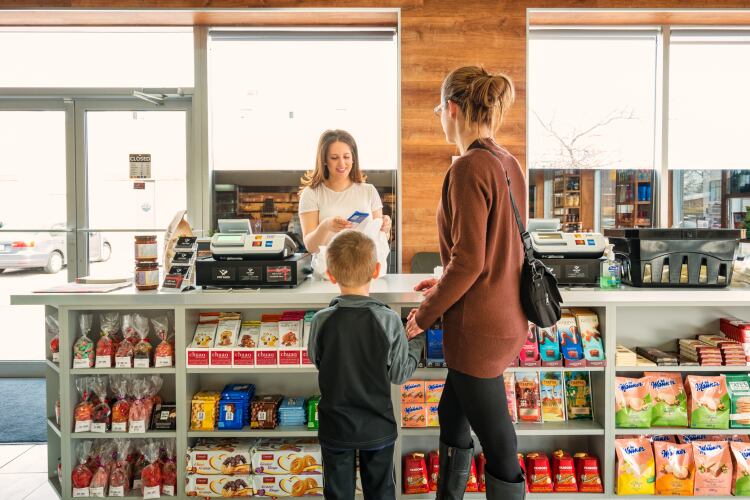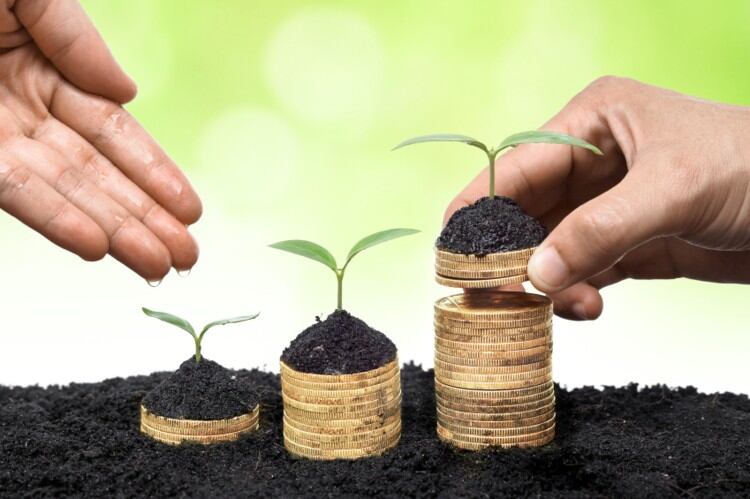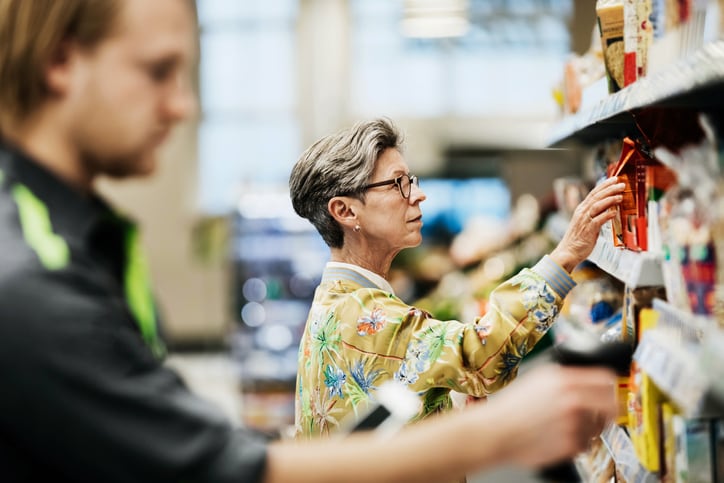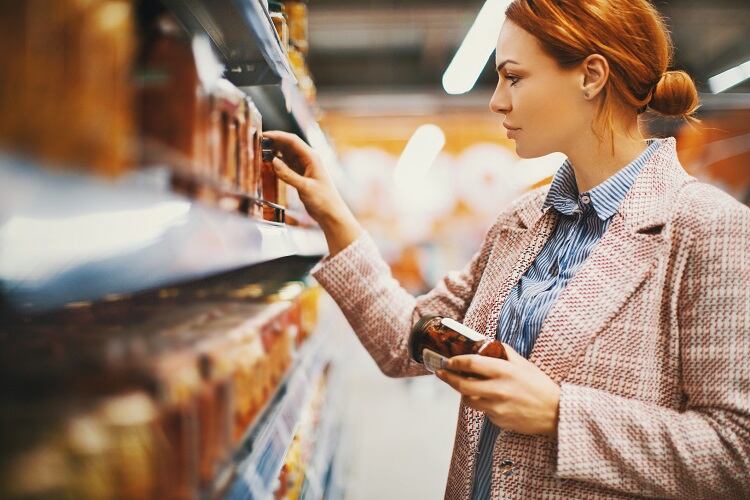Climate change is putting ever greater strain on food production globally. The industry’s exposure to global heating is a long-term exponential threat. At the same time, the sector is a significant contributor to the problem. The food system is linked to 35% of total manmade greenhouse gas emissions, according to a recent study. In the European Union, McKinsey estimates agriculture is responsible for 13% of total emissions.
There is now widespread consensus that the long-term outlook for food production requires a fundamental re-think in the way food is produced. “It is time to stand up, take responsibility and lead the change… As a food business we have a bigger role to play in society moving beyond the transactional,” Arla UK MD Ash Amirahmadi said during the keynote speech at 2022’s City Food Lecture yesterday.
“We can’t discount that we are feeding billions of people but that comes at an environmental cost,” he told his audience at Guildhall in London.
Reducing the footprint of food will require investment. The elephant in the room is the question: who will fund this?
A business case for spending on sustainability
To some, investing in sustainable production is a shrewd business decision. Wyke Farms, for instance, has invested in renewable energy production and the cheese maker produces all its own gas and power, with digesters breaking down organic waste into natural energy. In today’s energy climate, MD Rich Clothier said this decision is paying off.
“It makes good business sense… manufacturing businesses need to be energy independent,” he said.
Looking at on farm emissions, he said ‘quite a lot’ of the changes needed to accelerate towards greener production ‘lowers cost on farm’. “I’m a firm believer that a low carbon business is a low-cost business.”
James Lloyd Jones, founder and CEO of Europe's largest vertical farm the Jones Food Company, agreed. “I was able to start with a blank piece of paper… sustainability was [built in] at the start because it was very good for the business,” he suggested. The company decided to tackle one of the biggest challenges in vertical farming – high energy use – from the get-go, building its business model on the foundation of green energy. “We didn’t want to be beholden to external pressures,” Jones reflected.

However, Amirahmadi cautioned that the business case for environmental investments will only get the industry so far and pointed out that large listed companies have to balance a desire to go green against short-term financial metrics.
Unilever - a ‘role model’ in its sustainable business agenda - is ‘under significant pressure from their sceptical shareholders to return a better profit’, the Arla executive pointed out. “The desire for profit remains strong and we have to recognise it.”
Will consumers pay?
In order to ‘navigate the economic factors’, Amirahmadi insisted that sustainability needs to be reflected in consumer prices. “That is why connecting our efforts to the consumer is so important. In the end we – the consumers – will pay for it.”
To get consumers to cough up, Amirahmadi believes that effective communication is a critical tool. “We need to talk about the changes we are making with consumers,” he suggested. “Linking farmers and consumers together is how we accelerate towards sustainable food production. They are the two most important stakeholders to connect.”
But Fraser McKevitt, Head of Retail and Consumer Insights at Kantar, was less optimistic that today’s shopper is willing to face increased prices in order to build a more sustainable food system.
Nine in ten British people say they want brands ‘to help them be more environmentally sustainable’, he noted. But how many of them are willing to pay more? This figure is significantly lower, with Kantar research suggesting just 29% of consumers are what it has termed 'eco-actives', shoppers who are highly concerned about the environment and taking action to lower their impact. McKevitt suggested that ‘much fewer’ shoppers still will translate that into paying more at the checkout.
“Nobody is particularly keen to pay more. If you are a company talking about eco credentials very few people are willing to pay more,” he observed.
However, he does see another path forward for sustainable brands to command a price premium. ‘Add something on top’, the trends expert advised, with traits like quality and provenance resonating with consumers. “On its own, [sustainability] is a pretty hard sell."

Keeping consumers on side
In order to justify higher pricing at a time of significant food price inflation sustainable food makers have to be careful not to alienate consumers with their pricing strategies.
“That is quite a challenge,” McKevitt said, suggesting that brands focus their communication around sustainability on the issues that consumers say matter most to them. “When we look at what worries people most in the UK the first thing that comes up is plastic… the second one is around climate change, which is all encompassing,” he said.
Amirahmadi agreed that communication around sustainability has some way to go still. “We know how to make changes to be more sustainable,” he suggested. “We have to get better at telling out story… in a way consumers can engage with.”
Wyke’s Clothier believes that pitching your story at an appropriate level is another aspect sustainable brands need to keep in mind. “There is always a tendency for us in manufacturing to get too techy… If you talk about farmers with wider hedgerows, pathways for biodiversity, it can be a good selling point.”
On the flip side, Jones observed that detailed communication can be needed to build credibility among a consumer base that is sceptical of greenwashed claims. “There is a lot of misinformation. It looks like the Wild West,” he told the audience of food industry thought-leaders. Jones Food Company therefore opts to communicate in ‘exact figures’.
Could eco-labels offer a solution?
Amirahmadi said this is a ‘bone of contention’ within the industry with little agreement on the metrics that would allow consumers to easily compare products, with some advocating emissions or carbon footprinting and others calling for issues like nutrient density to be factored in.
Nevertheless, Clothier said, ‘there is a desire within the food industry if not a consensus’ and Jones suggested a simple system comparable to traffic lights on nutrition would boost sustainable sales. “People would buy on that sustainable message,” he suggested.




